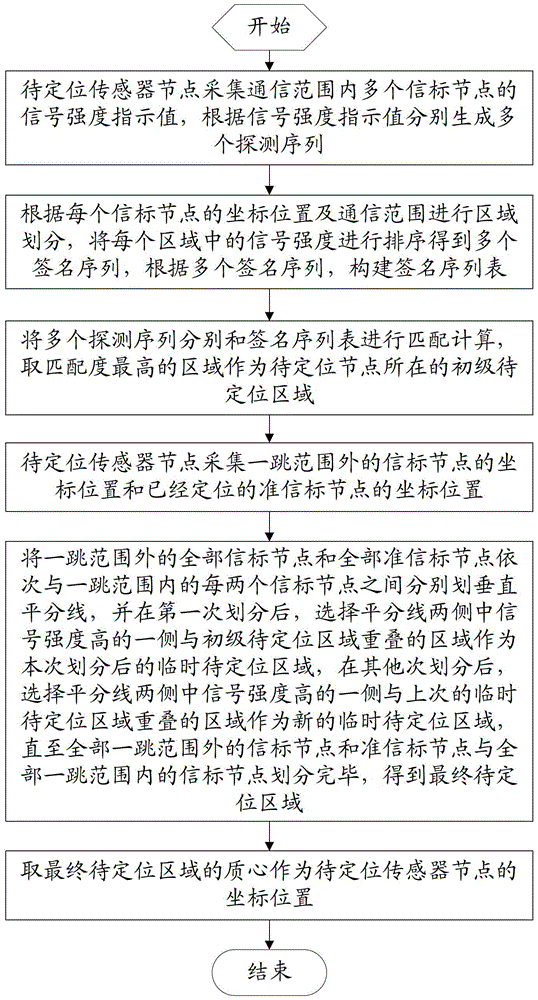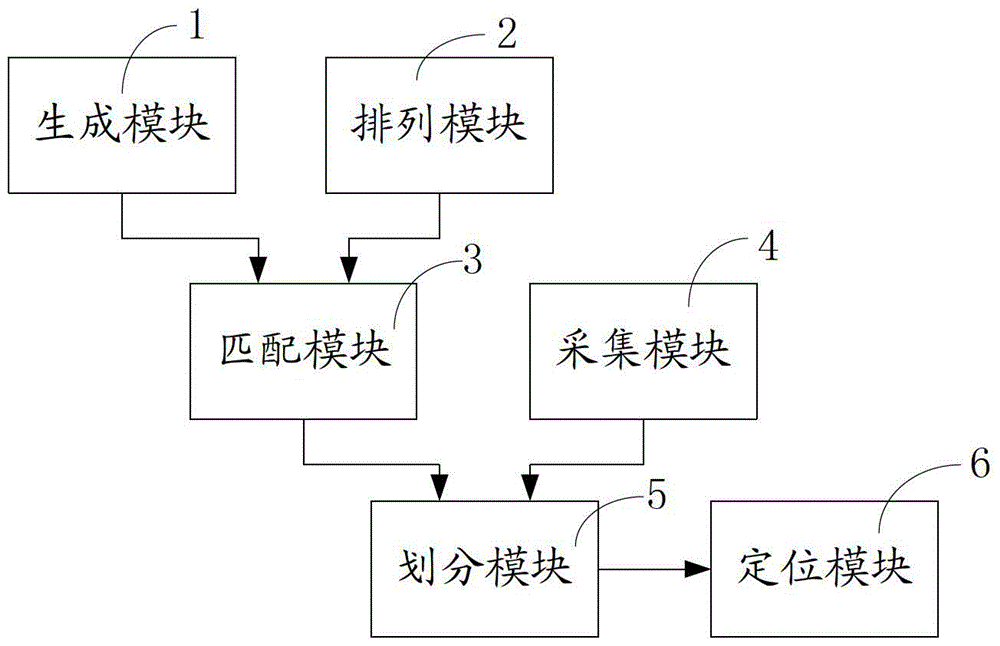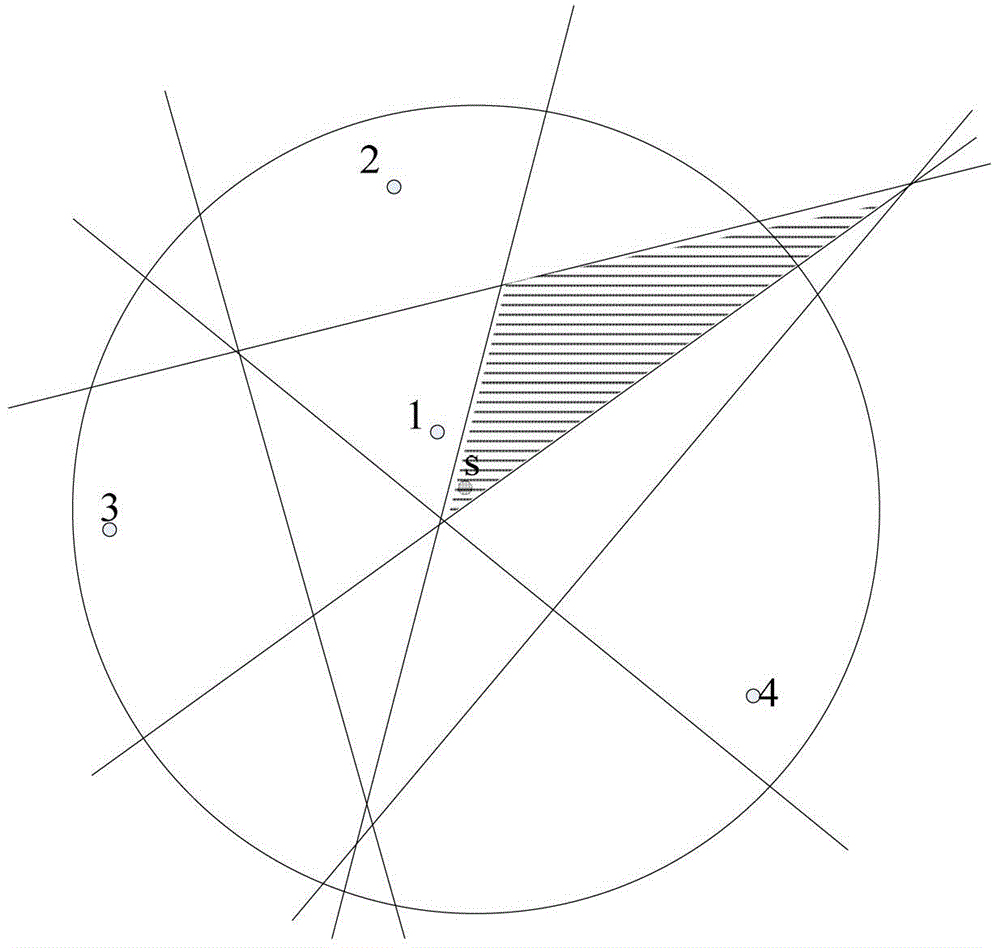A sequence-based sensor node positioning method and device
A technology of sensor nodes and positioning methods, applied in electrical components, wireless communication, network topology, etc., can solve problems such as inability to make full use of node position relationships, high network communication overhead, and inability to make full use of unknown node information to achieve good robustness The effects of stability, reduced requirements, and high matching accuracy
- Summary
- Abstract
- Description
- Claims
- Application Information
AI Technical Summary
Problems solved by technology
Method used
Image
Examples
Embodiment 1
[0047] A sequence-based sensor node location method, comprising the following steps:
[0048] Step 1: The sensor node to be positioned collects the signal strength indication values of multiple beacon nodes within the communication range, and generates multiple detection sequences according to the signal strength indication values;
[0049] Step 2: Divide the area according to the coordinate position and communication range of each beacon node, sort the signal strength in each area to obtain multiple signature sequences, and construct a signature sequence table according to the multiple signature sequences;
[0050] Step 3: Match multiple detection sequences with the signature sequence list, and take the area with the highest matching degree as the primary area to be located where the node to be located is located;
[0051] Step 4: The sensor node to be positioned collects the coordinate position of the beacon node outside the range of one hop and the coordinate position of ...
PUM
 Login to View More
Login to View More Abstract
Description
Claims
Application Information
 Login to View More
Login to View More - R&D
- Intellectual Property
- Life Sciences
- Materials
- Tech Scout
- Unparalleled Data Quality
- Higher Quality Content
- 60% Fewer Hallucinations
Browse by: Latest US Patents, China's latest patents, Technical Efficacy Thesaurus, Application Domain, Technology Topic, Popular Technical Reports.
© 2025 PatSnap. All rights reserved.Legal|Privacy policy|Modern Slavery Act Transparency Statement|Sitemap|About US| Contact US: help@patsnap.com



